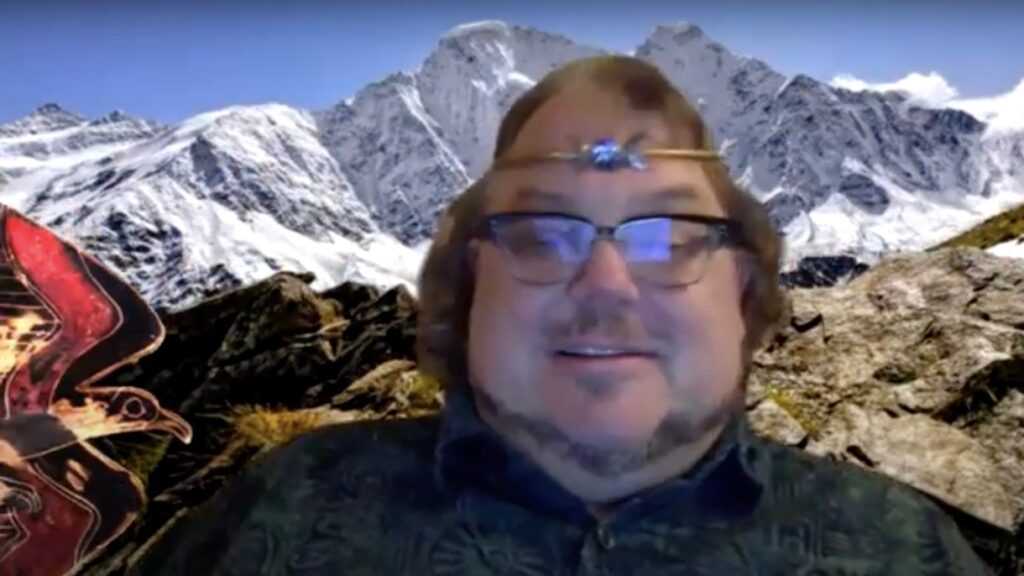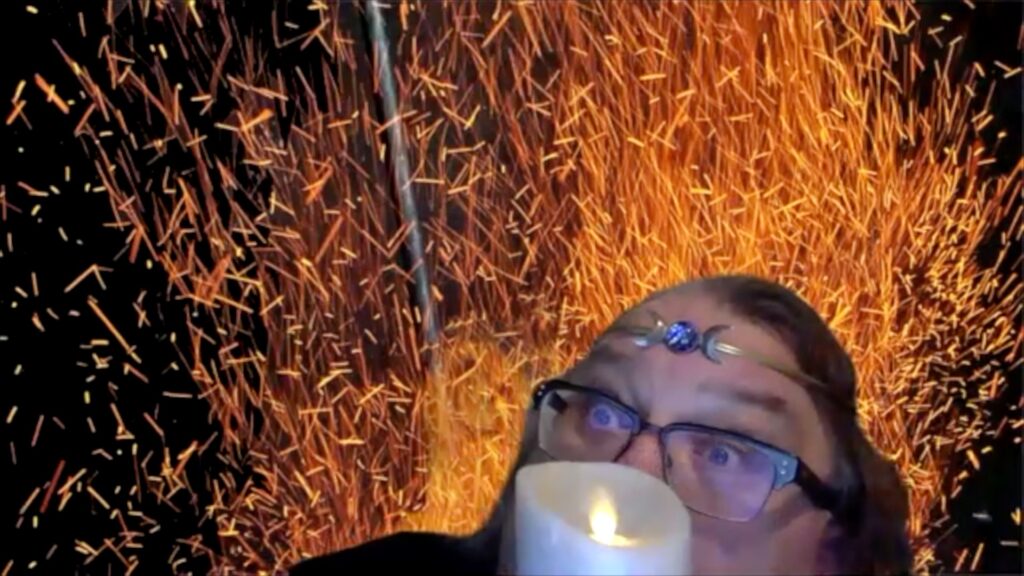The next installment in the series:

Full script below.
Continue reading “Prometheus, part three”Yet Another Unitarian Universalist
A postmodern heretic's spiritual journey.
The next installment in the series:

Full script below.
Continue reading “Prometheus, part three”The next installment of the Prometheus myth:

As usual, full script is below.
Continue reading “Prometheus, part two”Another late start this morning. Both of us had vivid dreams last night. I can’t remember what happened in my dreams; I used to write detailed notes of my dreams, but gave it up a long time ago because dream narratives are usually confused and ridiculous, the characters strange and inconsistent. Reality is already confused and ridiculous and strange and inconsistent, there’s no need to add to the trouble. Nevertheless, this morning I knew I had had vivid dreams, and I was glad to let the sunlight drive them out of my head.
In Nevada and Wyoming, the interstate highway gives you the best view of the landscape, generally showing you pastoral idylls and hiding from view the huge mining operations and industrial plants. But once you get as far east as Missouri, the interstate highway shows you the large industrial plants and huge warehouses; industries want to be close to the interstate, and you see only occasional woodlands, and fields of corn or soybeans.
We past Columbia, the state capitol, and drove south through exurban housing developments to Little Dixie Lake Conservation Area. A map showed a trail going all the way around the lake, and we started walking along it. It started out as a broad trail which had been mowed through the grass and plants growing under the second growth trees, and as it wound away from the boat landing it slowly narrowed until it was no more than a path. It wound along near the shore of the lake, and tract houses on their one- and two-acre lots were sometimes visible through the thousand foot wide woodland. The beauty we found was in the trees and plants and shoreline immediately in front of us; the broad views were unremarkable.
A light breeze blew off the water and kept us cool. We kept coming across Great Blue Herons sitting like sentinels on snags out in the water. We had been listening to an audiobook of Homer’s Odyssey, and when I saw the herons I thought about the eagles Zeus sent in answer to Telemachos’ prayer:
“So spake Telemachus, and in answer to his prayer did Zeus, of the far borne voice, send forth two eagles in flight, from on high, from the mountain-crest. Awhile they flew as fleet as the blasts of the wind, side by side, with straining of their pinions. But when they had now reached the mid assembly, the place of many voices, there they
wheeled about and flapped their strong wings, and looked down upon the heads of all, and destruction was in their gaze. Then tore they with their talons each the other’s cheeks and neck on every side, and so sped to the right across the dwellings and the city of the people.” (trans. S. A. Butcher)
Halitherses, who excelled his peers in his knowledge of birds, interpreted this augury for Telemachos: the suitors who took advantage of Odysseus’ absence to try to force his wife Penelope into marrying one of them — these men would meet certain doom. The young men dismissed Halitherses, just as you now no doubt are dismissing him, saying that the actions of birds have no meaning. Of course the actions of birds have no meaning, other than finding food and procreating; the same may be said for human beings, our lives are nothing more than the attempts of our DNA to mindlessly preserve itself. The Great Blue Herons standing like sentinels had no message for me or for anyone. They just reminded me of my father, who liked Great Blue Herons so much.
We walked for half an hour, then it was time to turn around. I saw some sassafras seedlings, and cut a twig for Carol. “Mm,” she said, smelling it, “what is that?” “Sassafras,” I said. She wanted to know what you can do with it, and I said you can make tea, which supposedly has very mild narcotic effects. Upon hearing that, I think she dropped her sassafras twig. I chewed on mine for a while; I found the taste very refreshing, but I didn’t notice any narcotic effects.
The rest of the drive was uneventful and not particularly scenic. I craned to see the Missouri River as we crossed over in west of St. Louis, but mostly what I saw was the guardrail and bridge abutments and a little bit of water as we sped across.
The fourth and final installment of the story of Demeter and Persephone.
Rich-haired Demeter still sat apart from all the blessed gods, wasting with yearning for her daughter Persephone. She caused a most dreadful and cruel year for humankind all over the earth.
The farmers and their oxen plowed the fields in vain. Farmers sowed seeds of the white barley, but the ground would not let the seed sprout. It seemed that Demeter would destroy the whole human race with cruel famine. And without humankind, the gods and goddesses who dwell on Mount Olympus would no longer receive the gifts and sacrifices that meant so much to them.
Zeus knew he must do something. First he called for golden-winged Iris, the goddess of the rainbow, to bring Demeter to Mount Olympus. Iris sped with swift feet to Eleusis, and found dark-cloaked Demeter in her temple.
“Demeter,” said Iris, “father Zeus, whose wisdom is everlasting, calls you to come join the tribes of the eternal gods. Come and do not ignore the command of Zeus, who rules over all the gods and goddesses.”
But Demeter’s heart was not moved, and she refused to go with Iris.
Then Zeus sent forth each of the gods and goddesses. They went to Demeter one after the other, offering many beautiful gifts, and godly rights and privileges.
But Demeter was still full of anger, and none of them could persuade her to go to Mount Olympus. Demeter said she would never set foot on fragrant Olympus, nor would she let food grow from the ground, until she saw her daughter again.
When all-seeing Zeus heard this, he called for Hermes, messenger of the gods, god of trickery and travelers and thieves. Zeus sent Hermes to the underworld, to convince Hades with soft words to allow Persephone come up from the misty gloom of the underworld, so that her mother Demeter might see her with her own eyes.
Hermes straightaway flew down to the underworld. He found Hades in his house, seated upon a couch, and his shy wife Persephone with him. Continue reading “Persephone and Demeter Meet Again”